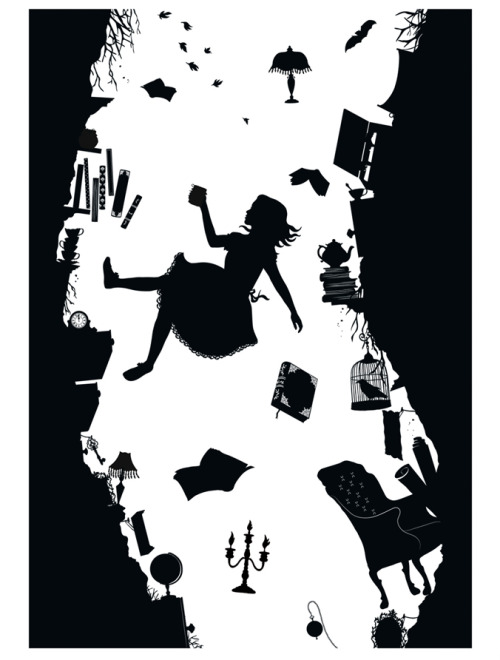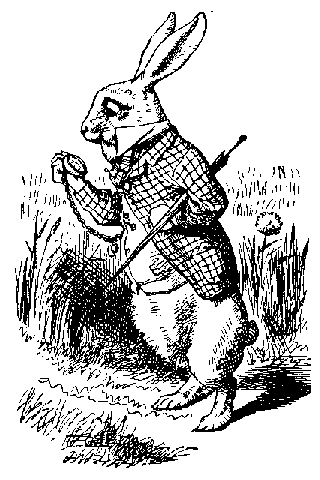
It’s true, I do find myself apologizing for my tendency to wander off topic, picking up some apparently tangential thread and tracing it back to the extent of my knowledge on the subject. However, I’m not planning on making an apology of that sort here, but rather an apologia, or defense of the pedagogical value of departing from the outline.
Apology, by the way, comes to English from Greek (and subsequently Latin) apologia, which breaks down pretty easily into apo– “from” + logos “word” or “speech.” The original meaning was a spoken defense, and that meaning remains in both apologia and its English translation apology. By the 18th Century the English word had come to be used more in the sense of expressing regret for wrong-doing. What happened to this word to turn its meaning from defending the correctness of one’s position, to something almost entirely opposite, claiming one’s mistake? It makes the word into an antagonym.
An antagonym…
…I apologize. That was a rabbit hole.
In my classes, and in KTS workshops we’ve taken to naming these departures rabbit holes. I’m not entirely certain how we came to choose the term, but it clearly refers to Alice’s Adventures in Wonderland:
The rabbit-hole went straight on like a tunnel for some way, and then dipped suddenly down, so suddenly that Alice had not a moment to think about stopping herself before she found herself falling down a very deep well.
Alice’s father, Henry Liddell, you may be interested to know, was the co-author of the great Greek-English Lexicon which is available online thanks to the Thesaurus Linguae Grecae, a research program housed on the campus of the University of California, Irvine…
Ok. No silliness after this line:

I’m cautious about stepping into rabbit holes, because there are important topics to cover and a careful plan to incrementally guide students toward greater awareness, and skill. If I keep fumfering on about the Great Vowel Shift, then there is a real danger that I’ll reach the end of our time together without having progressed toward those goals. Nobody wants that. Well, maybe that student in the corner who hasn’t been doing his homework, and hopes I’ll forget about the quiz. Almost nobody wants the class to be dithered away in irrelevancies.
And this is where my apologia comes in. Though staying on topic is a value that I uphold, I do allow myself to be tempted off the path by rabbit holes. After the class or workshop when I’m wondering why I didn’t get to everything I wanted to cover, I look at the time spent down rabbit holes and ask myself if I done right or no, but it’s always a question of balancing the cost of not progressing through the material with the benefit of the fall down the well. And there are very real benefits to wandering off the path.
One benefit is that this sort of public woolgathering leads to my saying some things out loud that I haven’t planned or fully thought through. In the process of emptying out the accumulation of random facts, borrowed concepts and sawdust that fill my brain, I will occasionally put some thoughts together in an interesting way. Certainly I also succeed in speaking nonsense a good proportion of the time, but once or twice, I manage to make connections that are happy surprises, and I think that the public nature of the ramble contributes to the potential for these events.
But by far, the most important benefit to my allowing myself to be distracted by mental sparklies is that I am modeling something that is essential to the education of artists, and central to the KTS way: CURIOSITY. When I interrupt my lecture on ‘aspiration’ to talk about the etymological overlap between conspiracy and spiritual, and how the words are like fossils, or rather like ongoing embodiments of a fundamental human intuition about the way the movement of our breath recapitulates the experience of thought and feeling, or when I pivot from that to mention that our sense of the match-up between the shape of the words and their meaning is called iconicity, and by the way, Marcus Junius Brutus the Younger obviously spoke Latin, so if he said the word conspiratio, it would have had the same iconicity as it would have for the actor saying conspiracy in the first production of Julius Caesar or for you when you say it in a production of the play today… there’s something in that set of detours that may be of value to an actor considering how speaking is part of their art.
I think, and surely I also flatter and mislead myself, that my joy in running through the rabbit warren, accosting words and demanding that they explain themselves, is something I want my students to see. I want them to get curious because they can see how much fun it is to be curious. And that, I think, is worth falling behind in my outline.
Previous post: Vocal Tract Posture in Four-Year-Olds Next Post: Time Put In
Yes!
As someone who never (okay, rarely) knows what she thinks till she hears what she says, I’m a great believer in the exploration of rabbit holes. But when the clock is ticking, as it usually is in my work, there is indeed a danger of Not Getting the Work Done. Sometimes it turns out the work we did in the rabbit hole was work that needed to be done anyway, but I’m always concerned that it might not be. I’d love to have a sort of class monitor to keep me on track, but unfortunately Ricky the Dialect Dog’s sense of time (being well-spent or otherwise) is keyed into earthier matters.
Phil,
I appreciate reading this now after you spoke a bit about this topic in class today.
I agree with Erik that it is important to find a balance between what holes are helpful to go down and which ones actually provide fruit.
For example: today you went slightly off of our work of exploring diacritic markings that you started demonstrating the nasalized speech pattern that led to our conversation after class. The demonstration was incredibly handy while we were in that hole, but it also sparked another query in my mind that helped answer a few questions that I had had for while. So in this case falling down the hole actually helped contextualized not just the diacritics we were reviewing but also how to navigate my use of language with younger students.
SO, thank you for falling down rabbit holes!
Some of the best discoveries I’ve encountered in classrooms, whether I was doing the talking or doing the listening, were waiting at the bottom of a rabbit-hole that I or the teacher was lucky enough to fall into and brave enough to explore out loud. Admittedly, sometimes the rabbit-holes are merely entertaining (and maybe only to me) but you make the point beautifully that enjoying our curious natures encourages others to enjoy theirs!
And sometimes a connection is made that results in a flash of brilliance. Some magic seems to require witnesses.
My dad often has said, “I didn’t know I knew that until I told it to you!” Heredity and genetics are fascinating things…
Having been blessed with the good fortune of doing a podcast with you, I know from personal experience that you are exceptionally good at falling down the rabbit hole. As someone who also is inclined to stumble off the path from time to time (ok, far too often for my own, and my students, good), I appreciate the skill and remarkable depth of your knowledge. Whereas my motto seems to be “the lake of my knowledge is very wide but extremely shallow”, the depth of yours is pretty remarkable. Sure I look a lot of stuff up, but almost all of it gets forgotten very soon after!
My fear is also that my performative self loves the attention I get from it, and so I am embarrassed to say that I think I may be doing it merely to entertain, to be liked. So though I am with you on the curiosity modeling, I do feel I have to keep trying to keep it in check. It is a balance that needs tending so that it doesn’t get out of hand.
First, you are too kind. We both achieved some epic lagomorphic peregrinations in our Glossonomia podcasts.
Second, you are too right. There is definitely a danger that what feels like an interesting detour will be nothing more than a pointless diversion. I’m certainly guilty of that, and I strive to correct myself. But I think our passion for the material we teach, and for the joy of knowing and learning is something worth showing off and reveling in.